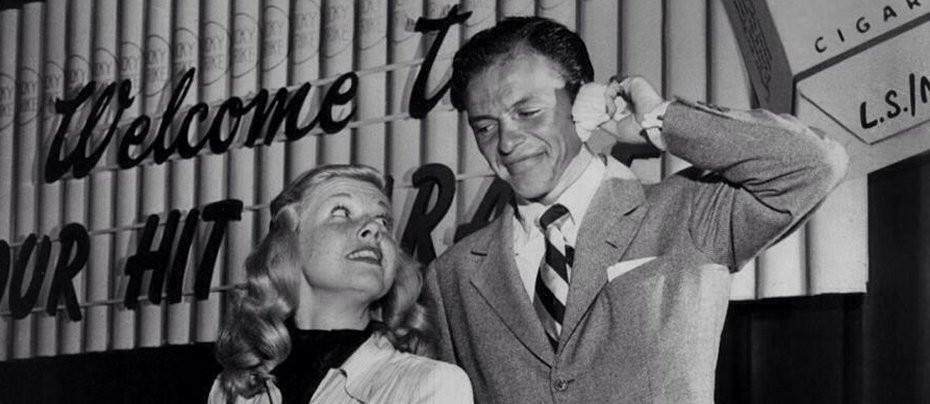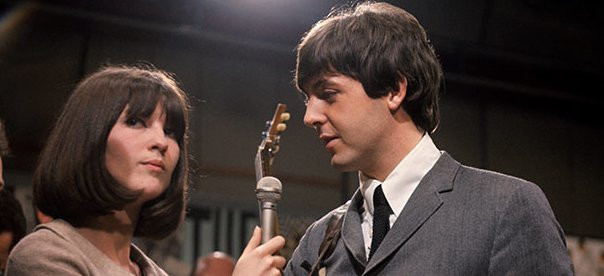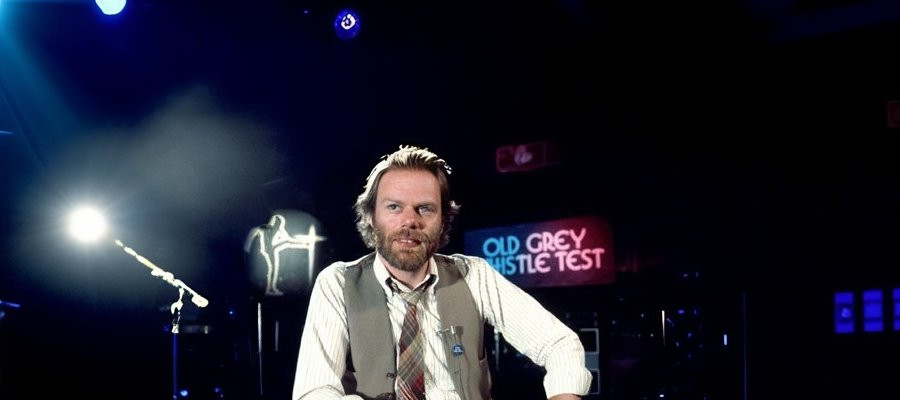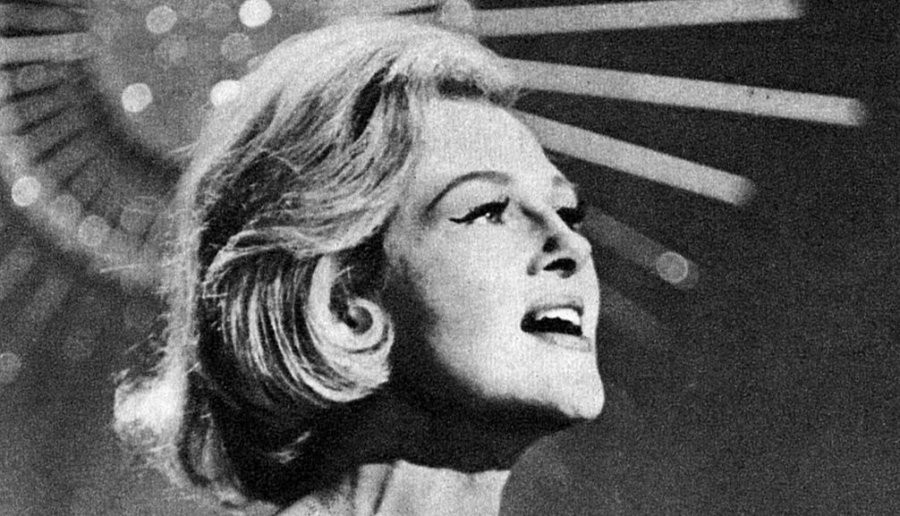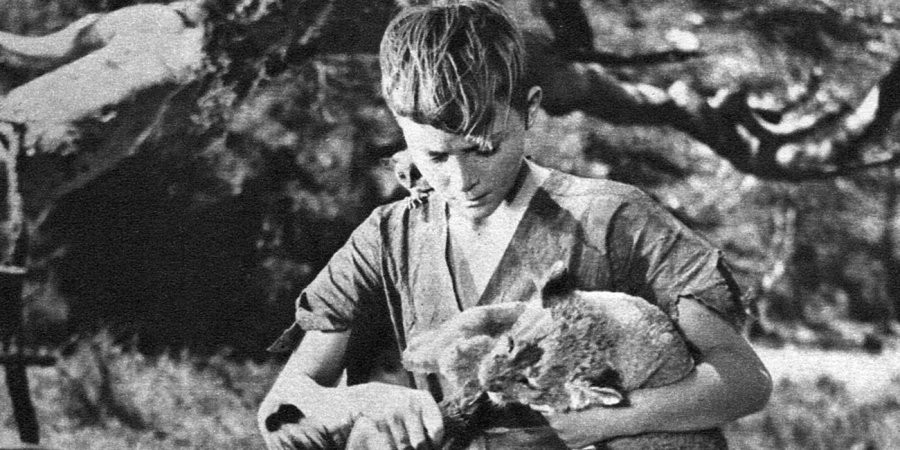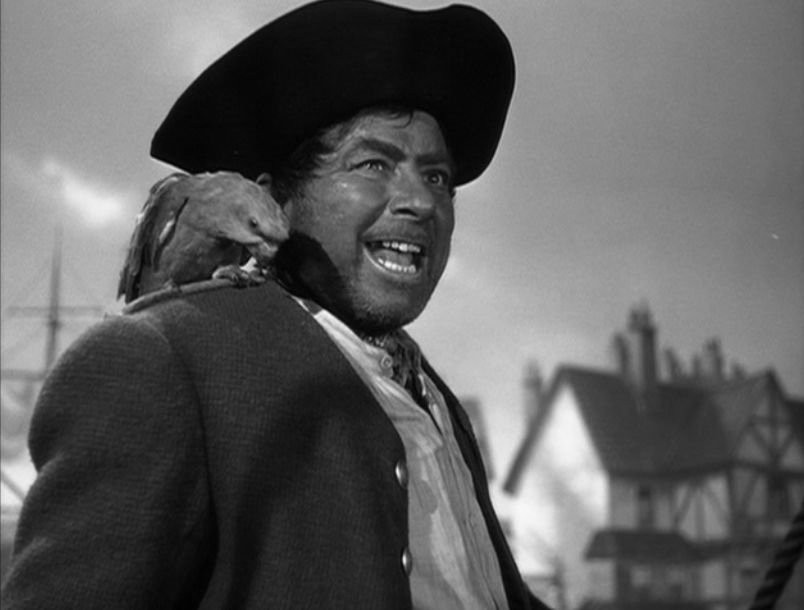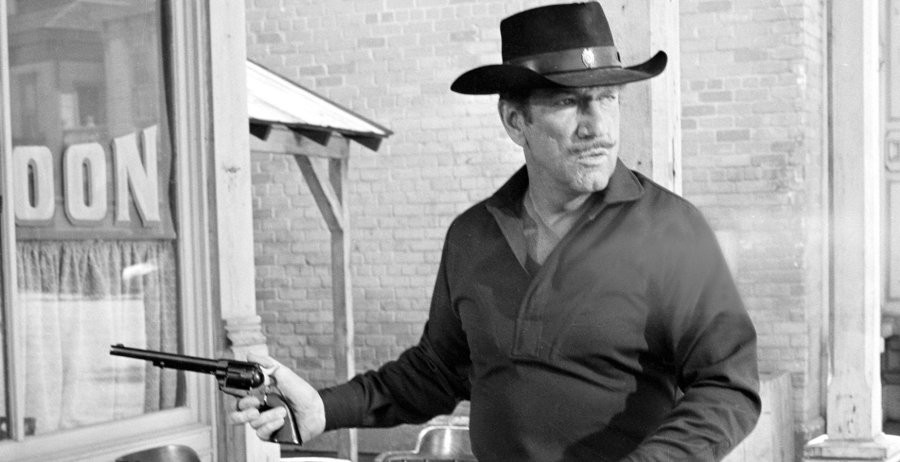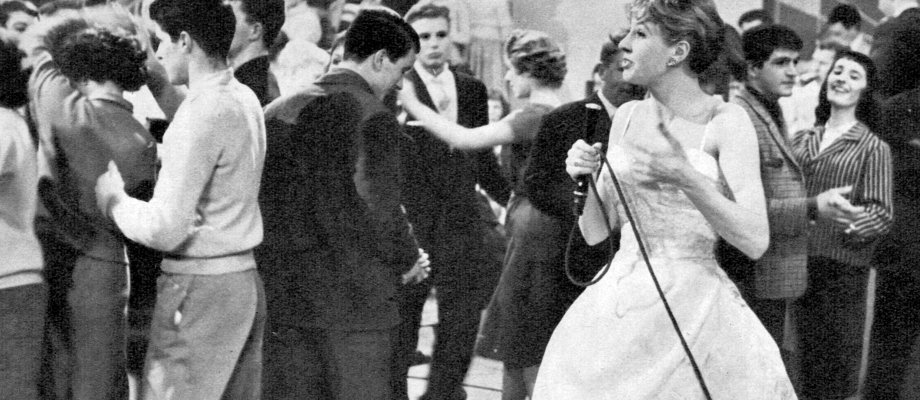
Six-Five Special
1957 - United Kingdom'The Shop Window for British Show Business' was how the BBC publicised Six-Five Special an appropriately named pioneering youth programme which hit the screens in 1957 with all the force of an express train. Until then both BBC and ITV had observed what was commonly known as the 'toddlers truce', an hour-long break in transmissions between 6 and 7pm designed to let mother get the young ones bedded down for the night without argument because "my favourite programme is about to start." But this all came to an end on Saturday 16th February 1957 when the BBC filled the silent peace and quiet with a five-minute news bulletin and a new teen show.
The series was the brainchild of producers Jo Douglas and Jack Good. "The show is essentially a team affair" said Jo in an interview she did in 1958 for a Daily Mirror publication celebrating the series’ first year. "We fit acts into the programme right up to the last moment, too. It's a most difficult show to produce - we start rehearsals at half-past ten on Saturday morning and then carry on right up to the last moment we go on air. Of all the BBC shows, it's by far the least rehearsed of them all." Originally the series was supposed to last for 60 minutes but when it was decided to have a news bulletin at 6pm Jo Douglas was asked to come up with a gimmicky title to attract viewers. Thus Six-Five Special was coined.
Six-Five Special quickly became the most successful light entertainment series the BBC had put on up to then and by 1958 they were boasting a viewing audience of 10,000,000 - which, if accurate (although at that time it would only be an estimate because broadcast audiences were gauged in households rather than individual viewers), was not only a fantastic achievement for a programme televised at an off-peak period but for any television show. Agents and bookers and record companies would clamour to get their acts on the show in order to promote the talent they were selling and representing. The original budget for the show was a meagre £1,000 and in order to save money Jack Good decided to cut out expensive sets, costumes and other overheads. As the show became more successful the budget was increased by 50 per cent but was still broadcast from a bare studio.
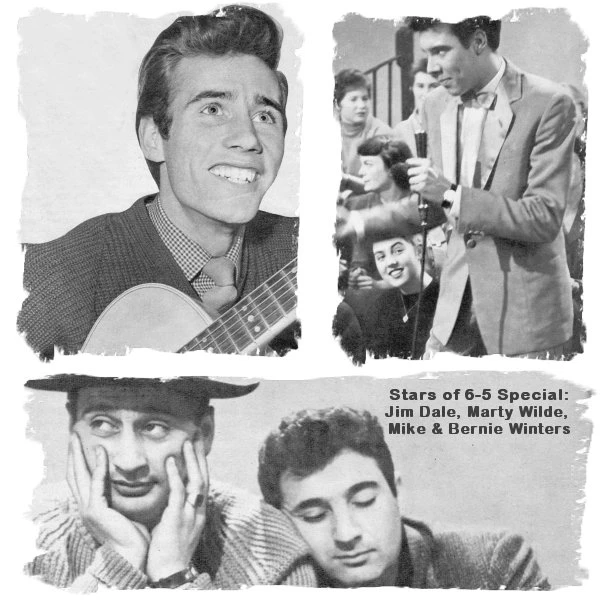
The show was not, however, all rock and roll and jiving. When it first began it was more of a magazine show with items such as Sports Box presented by former boxer Freddie Mills and Star Spotlight with Pete Murray, but Murray was later dropped as co-host from the series after his agent made 'certain financial demands', according to the BBC's Assistant Head of LE, Tom Sloan. Murray was replaced by comedian-cum-singer (later to turn comedian-cum-actor) Jim Dale. Other comedians also featured and 6-5 Special gave a television debut to Mike and Bernie Winters who had previously appeared with the singer Tommy Steele, also a regular on the show. Even Spike Milligan made a guest appearance. The Winters brothers themselves made their own 'discovery' and 15 year-old kilted Scot Jackie Dennis made his TV debut on the show. Proving an immense success, Dennis was soon signed to a £50,000 variety contract.
This being the 1950s and, more importantly, the BBC, there was a certain clean-cut balance to the series with the crooning Mudlarks - a family pop trio from Bedfordshire, and other acts who you would hardly term 'rock n' roll' appeared such as Max Bygraves, Rosemary Squires, Frankie Vaughan, Jimmy Young and future children's presenter Wally Whyton. As you would expect, Skiffle appeared heavily in the early days with Spasm and Skiffle group the City Ramblers appearing fairly regularly and there were several appearances by Mr Skiffle himself Lonnie Donegan.
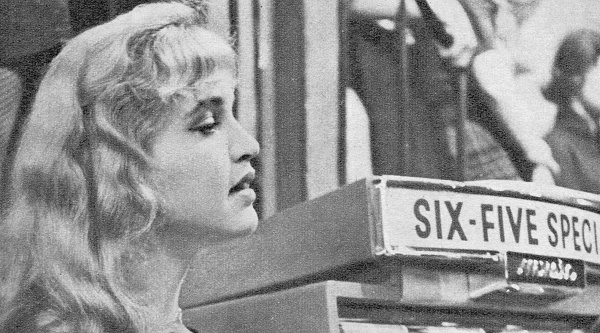
‘Six-Five’ also had the distinction of being the first British TV series to be televised outside Britain. After Jo Douglas and Jack Good left the series the regular team with producers Dennis Main Wilson and Duncan Wood went to Paris to put on the show with French technicians from the historic "Cellar of Terror"(where revolutionaries plotted the overthrow of Louis XVI) in the shadow of the Notre Dame Cathedral. The show also proved popular enough for a 1958 spin-off film. But by then Six-Five Special had its best days behind it. The early energy of the show was replaced by what Tom Sloan described as a 'definite swing back to ballads' as the decade came to a close. Not that ‘6-5’ was around by then. The show was originally scheduled to last just six weeks but, as a result of its popularity, it far exceeded that run. But when Jack Good jumped ship to set up a rival series on ITV, Oh Boy!, which was closer to his original vision for ‘6-5’, the BBC decided they could no longer compete and the 27 December 1958 edition was the last to be broadcast.
Seen this show? How do you rate it?
Seen this show? How do you rate it?
Published on May 2nd, 2019. Written by Laurence Marcus for Television Heaven.


